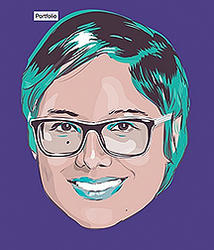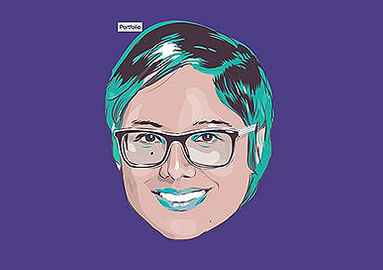
Tiny Interview:
Dorothy Santos, Writer & Artist
Dorothy R. Santos is a Filipina American writer and artist whose academic interests include digital art, computational media, games, and biotechnology. She’s also a San Francisco native.
How would you present your bio?
I’m a writer and artist with Bachelors’ degrees in Philosophy and Psychology from the University of San Francisco, and a Master’s degree in Visual and Critical Studies at the California College of the Arts. I’m currently a Ph.D. student in Film and Digital Media at the University of California, Santa Cruz as a Eugene V. Cota-Robles fellow. My work has been exhibited at Ars Electronica, Fort Mason Center for Arts & Culture, Yerba Buena Center for the Arts, and the GLBT Historical Society.
My writing appears in art21, Art Practical, Rhizome, Hyperallergic, Ars Technica, Vice Motherboard, and SF MOMA’s Open Space. My essay “Materiality to Machines: Manufacturing the Organic and Hypotheses for Future Imaginings,” was published in The Routledge Companion to Biology in Art and Architecture. I’m also a co-founder of REFRESH, a politically-engaged art and curatorial collective, the program manager for the Processing Foundation, and host for the podcast PRNT SCRN produced by Art Practical.
What are some of your own favorite past projects? Why do you feel great about them?
N-400 Revisited, which was a project I worked on during my fellowship at Yerba Buena Center for the Arts. The focus was on citizenship, so I created a text-based game in Twine of the N-400 form, which is the Application for Naturalization (to become a US Citizen). I wanted to make something that would make people feel tired and fatigued, intellectually and emotionally. It worked. I received generative feedback and will be revising the project for the 2020 Census.
Another personal past project was co-curating Refiguring the Future, with artist and scholar Heather Dewey-Hagborg. It was an exhibition in partnership with Eyebeam and 205 Hudson Gallery. It was funded by MacArthur Foundation and Open Society Foundations. The opening exhibition was followed by a two-day conference that involved some incredible conversations related to the exhibition. It felt good to see a show with almost all women and queer trans women of color.
“Prison abolition is yet another thing I would like to see, because there must be a better way for us to work and heal through traumas that perpetuate violence and injustice.”
What is a cultural phenomenon, experiment, or moment that has inspired you in the past?
Phone phreaking! [Editor's Note: "phreaking" is a slang term for, basically, telephone hacking.]
I'm interested in the media archaeology of the telephone (including but not limited to smartphones) and the subversion of the technology and the infrastructure. I'm fascinated by the vocalization of care, telegraphic fiction, and how women operators were a part of the evolution of the phone.
What's a current cultural edge you're excited to see people pushing?
Biohacking is something I'm interested in seeing evolve and expand. I'm also interested in gene-editing technologies, and how this might be used for biosurveillance as well as the relationship to citizen science.
What’s your biggest, most out-there dream of a better world?
There are so many things, really. Finding a solution for global warming. Eradicating the flotsam created by human consumption and capitalism. People using ALL of their senses and not just relying on the visual. Prison abolition is yet another thing I would like to see, because there must be a better way for us to work and heal through traumas that perpetuate violence and injustice. But there are so many other things to share/say...
If you could put out a PSA to the entire world asking for help with one thing, what would you ask for? And if someone is able to help with that, then how can they reach you? (e.g.: can they find you on Twitter, through a contact page on your website, etc.?)
Creating a sustainable ecosystem for artists (all kinds!) that would enable them to work on their art, teach (if that's what they want to do AND get paid a livable wage), and live in a place where they can serve their communities. The other thing built into that system would be a place where immigrant families feel welcome and supported and can create the life they envisioned for themselves and their family.
What are your favorite links that will help our audience learn about you, your life, your work, and your values?
Hyphen Magazine — the tagline is "Asian America Unabridged" and I'm one of the editors in chief
My faculty profile and research interests at UC Santa Cruz
What's a relatively small, highly achievable dream of a better world that you sometimes fantasize about, but haven't done yet?
The ability for people to learn about farming and creating their own farm (big or small).
What's your favorite thing about The New Modality?
The commitment to truth and stewardship. As someone who is striving to be a teacher (and live out the rest of my life as an educator), I love the idea that The New Modality is about consciousness building (sorry if that sounds third-wave feminism, but I mean it in the best way possible). It's about having people that might disagree be brought together. This project seems to want to bring different community members (from around the world) together and I deeply appreciate that. :)
Transparency Notes
This profile was edited by Katie MacBride. Katie is a writer and co-founder of Anxy magazine. More about Katie at her NewMo profile

